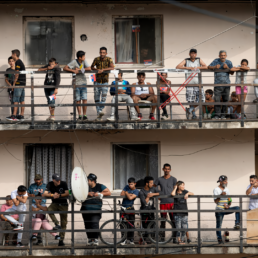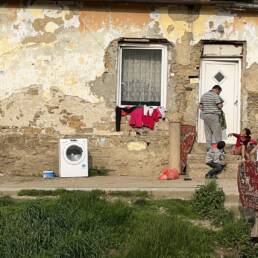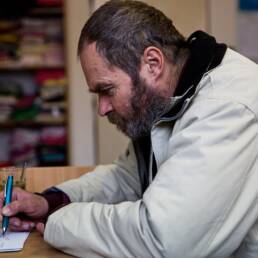Author
Lisa Schüler
Policy Officer
Caritas Germany
‘Money, money, money
Must be funny
In the rich man’s world…’
This famous ABBA song comes directly to my mind when thinking about European politics – and especially about European social policy. Progress is mostly made in those areas where the money goes… and the one deciding about the (re-)distribution of a certain budget is the one deciding about political priorities. Therefore the outgoing Commission president Jean-Claude Juncker emphasized on several occasions: ‘We need a budget to achieve our aims. The budget for us is therefore not an accounting tool, but a means to achieve our political goals’.
Budgetary sovereignty is therefore one of the most important tasks of a parliament as representation of the people. By putting more or less budget for e.g. the implementation of social policy measures such as youth initiatives, the parliament decides about the effectiveness of these policies. In the European Union, the European parliament shares the power to decide on the entire annual budget of the EU with the Council of the European Union.
Every year, the European Commission prepares a draft budget for the coming year, based on estimates from all European institutions. The Council then prepares a position on the Commission’s draft. The European Parliament can either accept the Council’s position, or amend it. In the latter case, a conciliation committee, composed of an equal number of representatives from the European Parliament and the Council, reaches an agreement within 21 days. This compromise budget will then be formally adopted by both institutions.
Through this procedure, the European Union is able to adapt its spending for each year, according to changing priorities. In the 2019 budget for example, the EU has boosted funds for migration, youth unemployment, climate protection and research by giving more funds to the Asylum, Migration and Integration Fund, Erasmus+, the Youth employment initiative and the research programme Horizon 2020. In the same time, it has cut funding designated to Turkey in view of the situation as regards democracy, the rule of law and human rights in this country. Through the annual budget, ‘real’ policy has been made.
We as Caritas advocate for social policy in Europe. We therefore have to closely monitor and work on not only the thematic policies such as the European Youth Guarantee, family politics or the European Pillar of Social Rights, but we also have to advocate that enough money is distributed to these policies in the annual budget process.
In the European Union, each annual budget follows a long-term strategic plan, the Multiannual Financial Framework (MFF). The MFF sets the limits for EU spending as a whole, as well as for different areas of activity over a period of seven years. The idea behind this long-term planning is to align EU spending with its political priorities, ensure EU budgetary discipline and add predictability to EU finances. According to the Multiannual Financial Framework, all European Funding instruments are programmed for a period of seven years. That means that funding programmes – such as the European Social Fund, Erasmus+ or the European Fund for the most deprived (FEAD), which are used by Caritas organisations all over Europe – change their thematic priorities, technical requirements and their budget every seven years. The Multiannual Financial Framework sets the Union’s political priorities and at the same time determines all European funding programmes. The Council, acting in accordance with a special legislative procedure, must unanimously adopt the MFF Regulation after having obtained the consent of Parliament.
The current Multiannual Framework 2014-2020 will end next year and negotiations for the next MFF 2021-2027 as well as for the regulations of all funding programmes are ongoing. As Caritas, we advocate for an inclusive and social MFF. Many Caritas projects depend on European funding. Therefore, they need the MFF negotiations to be closed as soon as possible. If Member States in the Council do not reach an agreement in time, a funding gap between the two funding periods could lead to big problems for many social projects. Such a situation has to be avoided.
Only sufficient funding allows the European Union to advance in social policies and to promote the European Pillar of Social Rights. Despite Brexit and other challenges, European leaders have to find an agreement for the next MFF as soon as possible.
About the author
Lisa Schüler has been working for the German Caritas Association’s EU office since 2013. As policy officer, she is responsible for EU funding and i.a. represents the German Welfare Organisations in the federal ESF monitoring committee in Germany. Lisa has studied European studies and political science in Passau and Bonn.











